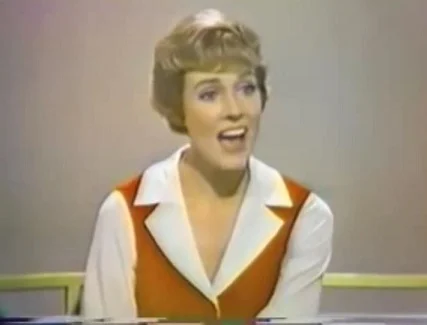Consonants + Singing: part 3
In part 1 and 2 of "Consonants + Singing" we have looked at the differences between voiced and unvoiced consonants, how they can aid in improving our singing, and how the approach in which we sing through them (quickly and on pitch, as appropiate) is crucial to improving sound and pitch accuracy. Now in part 3 we take a closer look at why Julie Andrews' voice is so vibrant and what we can do to apply her awesome techniques to our singing.
A vibrant face while singing = a bright vibrant singing sound
I would love to have a choir that combined the many vocal qualities of Julie Andrew's singing. She demonstrates amazing vocal acrobatics, clear diction, pitch accuracy and consistent vocal vibrancy. Let's discuss how she does this.
1) She has amazing vocal flexibility. (Have you heard her sing “the Lonely Goatherd” lately?? The yodelling, the numerous different Goat-singing imitation sounds, and the perfect accuracy of skipping up and down from the top to bottom ends of her vocal range quickly and with perfect accuracy). She always sings in her head voice, making the transitions from top to bottom and back to the top of her voice effortless.
2) Diction is clear as day. How does she do this? By not modifying any vowels (until her upper register) and skipping quickly through the consonants, phonating voiced consonants to the following pitched vowel which also avoids unwanted scooping, pitch and tuning issues.
3) Vibrato is neither too fast or two slow so its almost imperceptible- for example, the only thing I hear is a colourful vibrant singing sound, not “oh listen to her twittering voice mom!”
4) She sings with energy and spark. She always sounds like she is smiling when she is singing-not spread, or shallow sounding, but smiling-lifted soft palette creating a cathedral like dome where the resonances are able to bounce, sail and careen out into our ears! None of her vowels are dark or manipulated, it all sounds like natural singing sound.
How many times have I yelled "SMILE!!" while we are singing? How we look directly effects the singing sound we make. Dark serious face = dark serious sound, bright vibrant face = bright vibrant sound. Practising in front a mirror is a wonderful reality check, try it sometime and see for yourself how your look when you sing. Maybe next week I will have more gorgeous, alive, smiling faces looking back at me...

